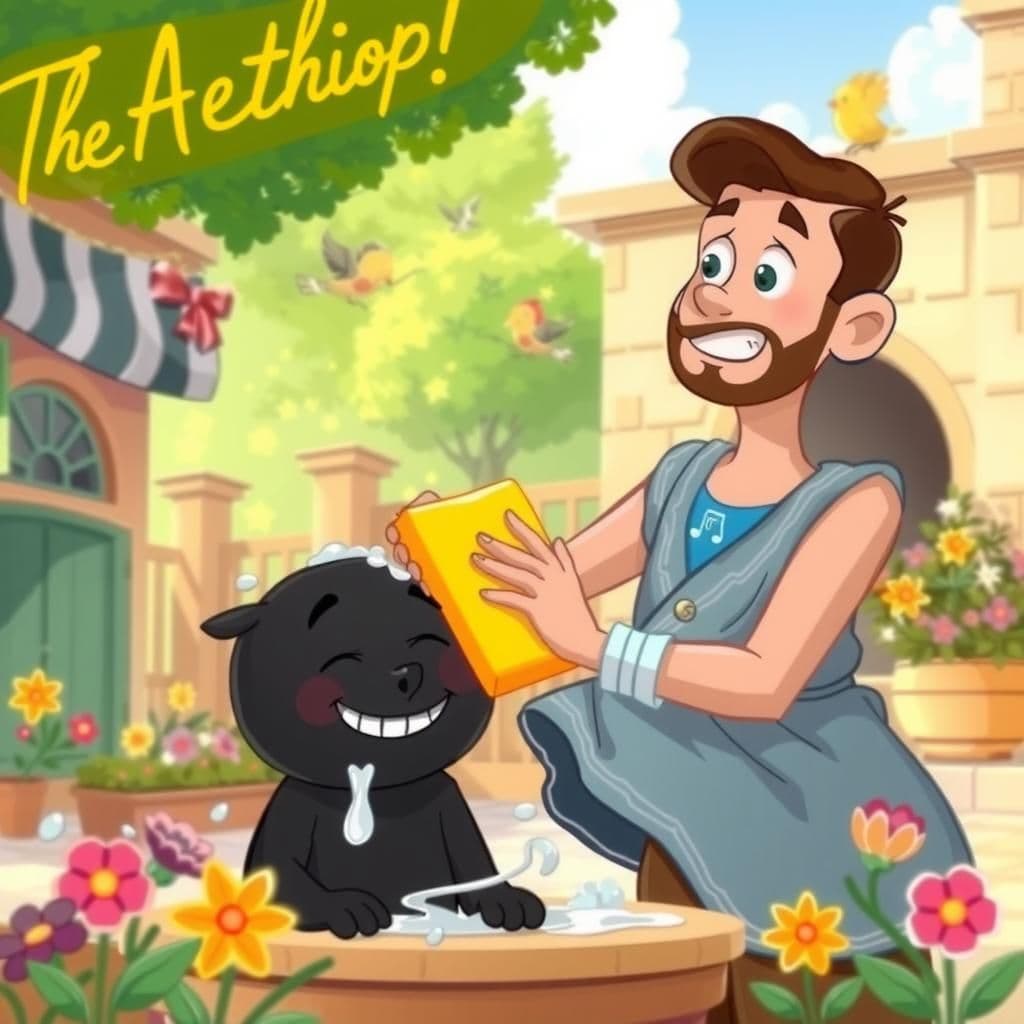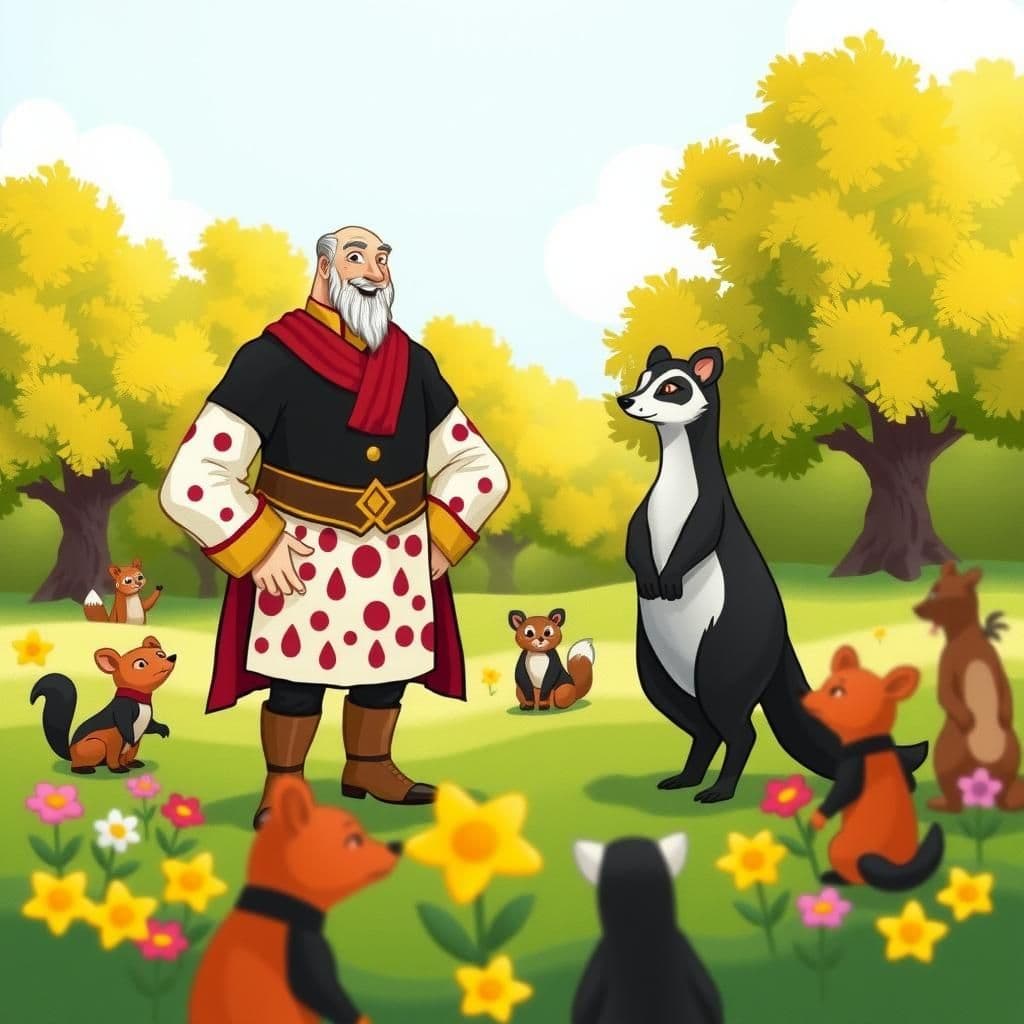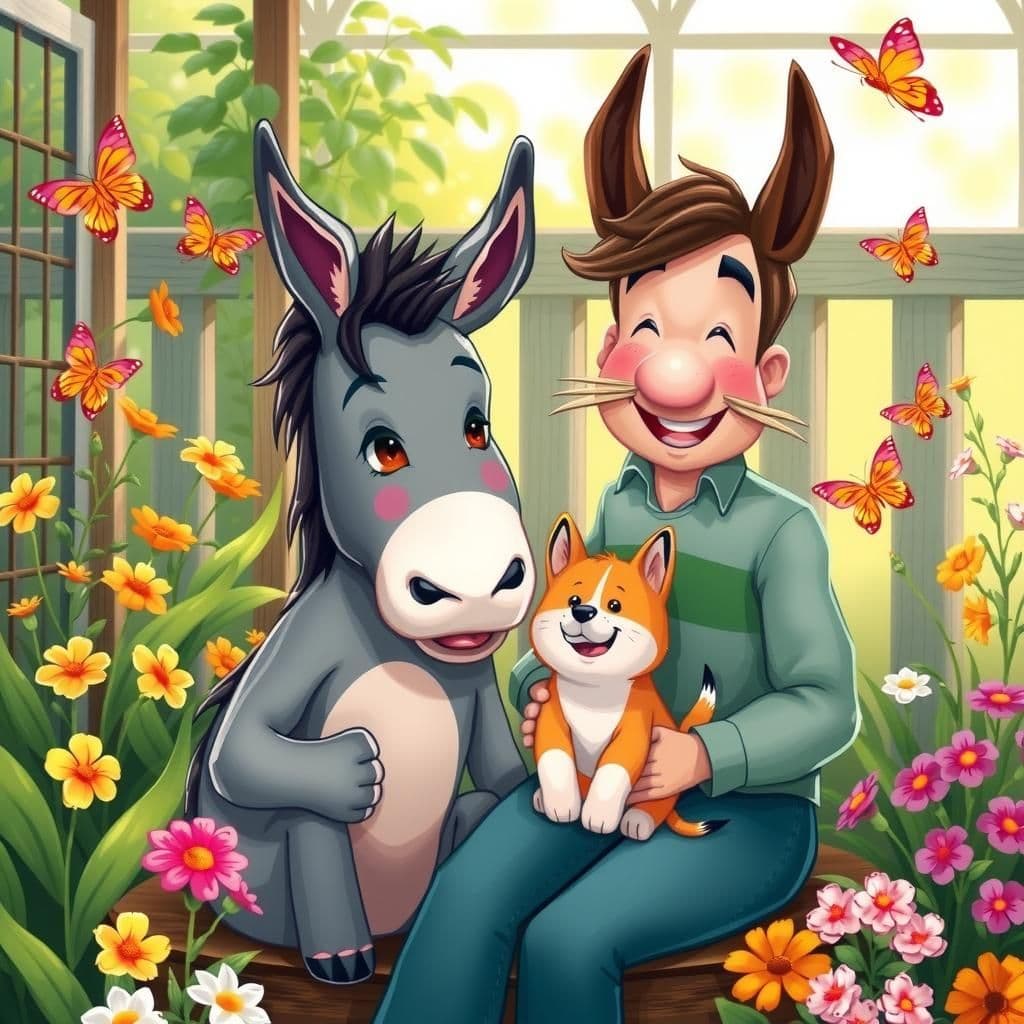The Aethiop

Story Summary
In "The Aethiop," a man naively purchases a black servant, believing that his skin color is simply dirt that can be scrubbed away. Despite his relentless efforts, the servant's complexion remains unchanged, illustrating the life-lesson that inherent traits cannot be altered by external means. This short story with moral serves as a poignant reminder that what is bred in the bone will stick to the flesh, making it a compelling addition to uplifting moral stories and fable stories with moral.
Click to reveal the moral of the story
The moral of the story is that inherent qualities or characteristics cannot be changed by superficial treatments or efforts.
Historical Context
This story reflects the pervasive attitudes and misconceptions surrounding race during the era of slavery and colonialism, particularly in the context of 18th and 19th century Europe and America, where the dehumanization of Black individuals was commonplace. It echoes themes found in folktales and moral lessons that emphasize the idea that inherent traits cannot be altered by external attempts at change, paralleling variations of similar narratives in African and African American folklore that critique racial stereotypes and highlight the futility of denying one’s identity.
Our Editors Opinion
This story highlights the futility of attempting to change inherent attributes or identities through external means. In modern life, this can be reflected in scenarios such as a workplace where diversity is superficially embraced but not genuinely valued; for instance, when a company hires employees from various backgrounds but fails to create an inclusive environment, expecting them to conform to a singular culture rather than appreciating their unique perspectives.
You May Also Like

The Blotted Escutcheon and the Soiled Ermine
In "The Blotted Escutcheon and the Soiled Ermine," two figures confront societal judgment in this concise moral story. The Blotted Escutcheon defends his spotted appearance as a noble trait linked to his ancestry, while the Soiled Ermine embraces his inherent dirtiness, highlighting themes of identity and acceptance. This moral short story invites readers, especially kids, to reflect on the nature of self-worth and the judgments imposed by society.

The Donkey and the Lapdog
In "The Donkey and the Lapdog," a donkey envies the lapdog's affectionate bond with their master and tries to mimic its behavior to earn love, only to face punishment for his clumsiness. This heartwarming moral story teaches that one’s unique talents cannot be forced or imitated, reminding readers that true gifts are inherent and should not be overshadowed by the envy of others. As one of the engaging short stories with moral lessons, it serves as a valuable reminder for students about the importance of self-acceptance.

A Transposition
In this humorous story with a moral, a Jackass and a rabbit engage in a debate over their sizes, each convinced the other is larger in their category. Seeking resolution, they turn to a clever Coyote who diplomatically affirms their claims, illustrating the folly of their misidentifications. Pleased with his wisdom, they decide to support him for a leadership position, leaving the outcome uncertain but highlighting a life-changing lesson on perspective and self-awareness.
Other names for this story
Color of the Soul, Scrubbed Clean, The Unchanging Shade, Beneath the Surface, Stain of the Past, Shadows of Misunderstanding, The Persistent Hue, Cleansing Illusions
Did You Know?
This story highlights the absurdity of racial prejudices and the futility of trying to alter inherent characteristics, suggesting that true identity and worth cannot be changed by superficial means or societal misconceptions. The phrase "What's bred in the bone will stick to the flesh" serves as a poignant reminder of the permanence of one's nature, regardless of external attempts to impose change.
Subscribe to Daily Stories
Get a new moral story in your inbox every day.